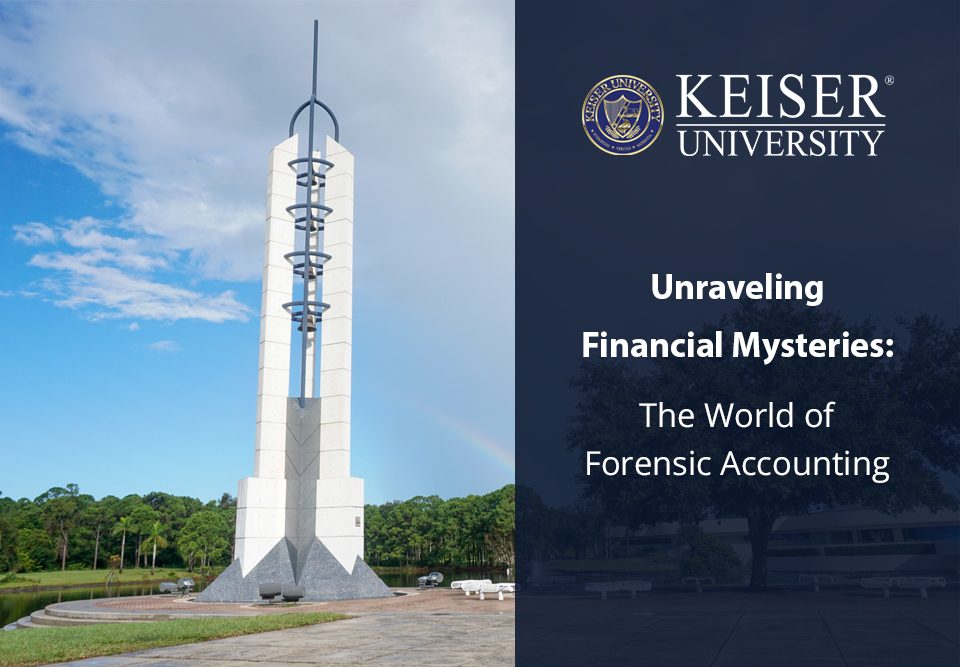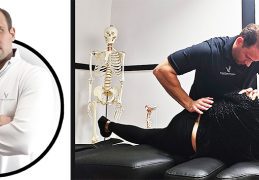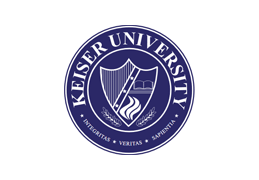The field of accounting has a bad (and untrue) reputation for being a tad boring. But the forensic accounting niche defies all the stereotypes typically associated with this sector of the financial industry. The life of a forensic accountant is anything but ordinary — these professionals get to spend their days diving into the numbers, performing audits and taking a closer look at the books. They play a crucial role in fraud investigations, often examining the accounting work of large corporations and private individuals.
Should you be interested in combining the best accounting practices with well-developed investigative skills, then forensic accounting may be the perfect career path for you.
What Is Forensic Accounting?
Forensic accounting is sometimes referred to as investigative accounting, largely because this type of accounting requires professionals to rely on advanced accounting practices as well as auditing and investigative skills to evaluate an organization’s or individual’s finances. According to Investopedia, forensic accountants are CPAs trained in fraud detection and capable of identifying financial irregularities and criminal behavior.
Importance of Forensic Accounting
The field of forensic accounting plays a critical role in financial oversight. Per reports from Palladium Financial Group, forensic accounting is important because:
- Professionals who specialize in forensic accounting can offer keen insight into financial irregularities.
- Forensic accountants play an important role in recovering lost assets for an organization or individual.
- Forensic accountants can provide financial evidence in court, which can help streamline litigation and expedite legal resolutions.
The Role of Forensic Accountants
Forensic accountants are Certified Public Accountants who specialize in forensic accounting or investigating accounting. They are often responsible for analyzing complex financial data and identifying financial irregularities, and the results of their financial investigations may be used as evidence in court.
Investigative Expertise in Financial Analysis
The primary role of forensic accountants is to complete financial investigations. They rely on an advanced set of bookkeeping, auditing and investigative skills to identify fraud or other financial crimes, such as embezzlement, misappropriation and kickbacks. Forensic accountants must be detail-oriented individuals who know how to think critically and analytically, as they are required to sift through mass amounts of financial data and evaluate their findings to determine if a crime has been committed.
Uncovering Fraud and Financial Irregularities
Through their advanced knowledge of the best accounting practices, and their finely tuned investigate skills, forensic accountants can easily uncover fraud and financial irregularities during their investigations. Whether they are working for a corporation, insurance company or an individual client, forensic accountants play a critical role in recovering lost assets.
Collaboration With Legal Authorities
Due to the nature of their investigations, forensic accountants often provide litigation support. Forensic accountants primarily collaborate with legal authorities when damages in the case need to be quantified. In addition to helping lawyers resolve disputes and finalize settlements, forensic accountants also may have to serve as a witness and give testimony if a case goes to trial.
How to Become a Forensic Accountant
The pathway to becoming a forensic accountant can vary, but all professionals in this niche area of the accounting field need to have a universal foundation in accounting as well as specialized auditing and investigation skills.
Educational Requirements and Certifications
Anyone who wants to work as a forensic accountant will first need to earn an undergraduate degree in accounting, finance or another related field. A master’s degree in accounting or another related field is preferred by many employers. In addition, those interested in working as a forensic accountant may also want to learn more about criminal justice and law enforcement, either through professional development programs or certification programs.
Forensic accountants also may want to consider a Certified Public Accountant certification or Certified Fraud Examiner certification to acquire the skills necessary to practice in this specialized field.
Growing Demand for Forensic Accounting Professionals
Indicated by the Bureau of Labor Statistics, the accounting field is expected to grow by about four percent between 2022 and 2032. The BLS notes that forensic accountants are specialists within the accounting field, and overall, job growth is expected to be as fast as average when compared to all other occupations. Due to the specialized nature of forensic accounting, there may be heightened demand for well-qualified forensic accountants.
Key Skills and Qualities of Forensic Accountants
Forensic accountant skills vary slightly from traditional accountants, who focus primarily on standard bookkeeping and accounting procedures. In addition to having well-developed basic accounting skills, forensic accountants also need to focus on developing an advanced skill set that extends beyond the accounting industry. They are expected to have expertise in criminal justice and law enforcement, and they also need to be intimately familiar with the legal landscape and the court system.
Analytical Skills
Not only are forensic accountants responsible for gathering financial data but they also must be able to effectively analyze that data and determine if there are any noteworthy financial irregularities. This requires forensic accountants to think critically about the data that they are collecting, and to look for patterns that may indicate fraud.
High Attention to Detail
Many financial crimes are hidden in plain sight, which means that forensic accountants must be highly detail-oriented individuals able to spot seemingly insignificant irregularities and determine if they are part of a larger pattern of fraud. Typically, the most successful forensic accountants can focus heavily on the smaller details within the case, because this is often where misdeeds are uncovered.
Understanding Legal Frameworks and Regulations
In addition to having a solid working knowledge of the best accounting principles and auditing standards, forensic accountants also must have an advanced understanding of legal frameworks and regulations. Forensic accountants also must develop technical knowledge of tax laws, and they also must have in-depth knowledge of financial reporting requirements and regulations.
Effective Legal Communication
When it comes to legal proceedings, effective communication plays a critical role in the overall success of a case. Forensic accountants must be able to present information in a clear, concise and understandable way within the legal systems in order for everyone in the court to understand the ramifications of their findings.
Process of a Forensic Accounting Case
While each forensic accounting case is unique, there is a standard process and procedure that most forensic accountants follow when they work through a case.
Typically, these are the three steps involved in a forensic accounting case:
Initial Detection and Assessment
The case always begins with an initial detection, which leads to assessment and evaluation. When financial irregularities are detected or suspected, a forensic accountant is hired to perform an investigation.
Gathering and Analyzing Financial Evidence
Once the investigation begins, the forensic accountant will begin collecting financial data and analyzing the financial evidence. They will rely on accounting, auditing and investigative skills to detect fraud or identify any financial irregularities. This can be painstaking work, as financial misdeeds are often hidden amid a mess of financial records. In line with a report by CFO Share, financial investigations may involve financial analysis as well as staff interviews.
Reporting and Presenting Findings
Once the investigation is complete, the forensic accountant will report the findings to their client and present the findings to any other parties involved. In many cases, they will need to provide litigation support, either through helping all parties involved come to a fair settlement based on the quantification of the damages, or by providing testimony and evidence in court.
Technology’s Role in Forensic Accounting
Technology plays a critical role in the modern forensic accounting industry. Given the fact that this industry is heavily dependent upon data collection and financial analysis, it’s not surprising that a variety of technological tools and resources are being used to streamline investigations and improve results. Forensic accountants may also find themselves dabbling in the world of cyber forensics, which is a branch of forensics used to extract evidence stored on a digital device that may be relevant to an ongoing investigation.
Utilizing Data Analytics and Forensic Tools
Forensic accountants are becoming increasingly reliant on data analytics tools and digital forensic resources, such as:
- Forensic analytics tools that collect, manipulate and analyze data.
- Applications that digitize and preserve non-digital evidence.
- Data visualization discovery and analysis tools.
- Cloud-based forensics technology.
- Fraud detection and prevention applications.
- Text analysis tools for fraud detection.
It’s expected that artificial intelligence, virtual reality and augmented reality technology will have an impact on the field of forensic accounting, ultimately allowing professionals in this niche field to expedite investigations and improve the overall accuracy of their findings.
Explore the World of Forensic Accounting at Keiser University Graduate School
At Keiser University Graduate School, we offer several graduate degrees in accounting that will allow you to develop the advanced accounting skills needed to specialize in the field of forensic accounting. Our Master of Accounting program is designed to help you gain the credit and skills required for professional certifications in the industry, including the Certified Fraud Examiner certification. In addition, our Master of Business Administration, Accounting degree program promotes leadership skill development, which is ideal for anyone who is looking to elevate their accounting career.
Contact a graduate admissions counselor today to learn more about our accounting graduate degrees.






 The instructors at Keiser University impacted my life. They believed in my ability to become a great graphic designer, regardless of how I felt about my skills. KU helped to prepare me for the real world and got me to where I am today.
The instructors at Keiser University impacted my life. They believed in my ability to become a great graphic designer, regardless of how I felt about my skills. KU helped to prepare me for the real world and got me to where I am today.
